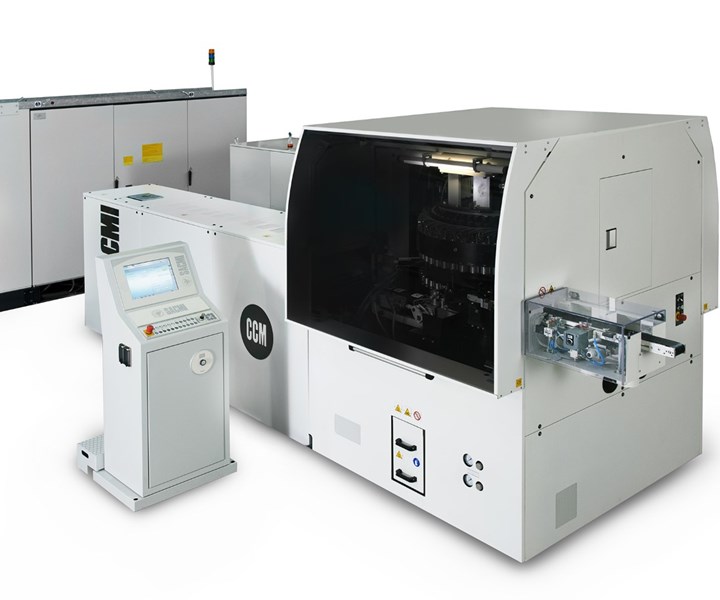Continuous Compression Molding Goes Multilayer
SACMI’s CCM system now can mold multilayer barrier containers such as coffee pods.
At last fall’s K 2019 show in Düsseldorf, SACMI of Italy presented a dramatic new capability for its continuous compression molding (CCM) system. This system, utilized up to now for high-speed production of caps and closures, is now moving farther into small containers such as single-serve coffee pods or capsules and tuna packages.

SACMI’s continuous compression molding system.
What makes this possible is new multilayer capability for these machines, designated CCMM. It involves coextruding a cylindrical “gob” with up to nine layers, which is sliced off the extrusion die, turned 90° and deposited in a compression mold on a continuously moving linear conveyor. Two machines are running coffee pods in Europe with two PP layers, one EVOH barrier layer, and two tie layers. A machine was also sold to Gateway Plastics in Mequon, Wis., for coffee pods. It has four extruders and can run up to 600 pods/min. The CCMM system is said to be capable of up to 800/min 32 cavities and accommodates products up 70 mm diam. and 50 mm high. CCM systems have been sold for monolayer coffee capsules that run at up to 1600/min. SACMI also offers a vision system for online 100% quality inspection that uses infrared light to measure layer thicknesses, especially that of the EVOH barrier.
Related Content
-
Foam-Core Multilayer Blow Molding: How It’s Done
Learn here how to take advantage of new lightweighting and recycle utilization opportunities in consumer packaging, thanks to a collaboration of leaders in microcellular foaming and multilayer head design.
-
BMW Group Vehicle to Adopt 3D Printed Center Console
A vehicle coming to market in 2027 will include a center console carrier manufactured through polymer robot-based large-format additive manufacturing (LFAM).
-
Medical Molder, Moldmaker Embraces Continuous Improvement
True to the adjective in its name, Dynamic Group has been characterized by constant change, activity and progress over its nearly five decades as a medical molder and moldmaker.


